What Happens When You Really Unplug
What Six Acres of Salt, Silence, and Stillness Can Teach You About Clarity
If Namotu teaches you anything, it’s that clarity doesn’t come from grinding harder. It comes from slowing down long enough to hear yourself again.
The boat pulls away from the mainland, and the wind shifts just enough to tell you that you’re leaving something behind. That thing, whatever it was, was noisy. Schedules, headlines, expectations, performance. You don’t realize the weight of it until you’re halfway across open water and, for the first time in a while, you feel your shoulders drop.
Namotu isn’t a vacation. It’s not a resort. It’s barely a dot on the map. But to those who’ve been, it’s sacred.
Listed at just six acres, the entire island is small enough to walk end to end before your coffee order is ready. The livable space, the bures, the decks, and the paths between the main bar and the boatshed could fit comfortably inside a football field. It doesn’t shout. It doesn’t sell. It just exists quietly, confidently, perfectly out of sync with the rest of the world. And that’s the point.
I’ve been coming here for twelve years. I missed a one during the worldwide time-out, COVID, but otherwise, this week has become a ritual. Same boats. Same Fijian spirit. Same feeling of exhale when I see Swimming Pools break out front and know I’ve made it back.
There’s a rhythm to this place that doesn’t change. Mornings start with surf or silence, whichever your body needs. By lunch, the cadence shifts between hammocks, reef swims, or conversations you didn’t know you needed. Water, Air, it all tastes different here. Days are long; weeks are fast.
And on the northern end of the island is Waqa’s Bar, named after a legend who used to run it while perched on a cooler, yelling into a walkie-talkie, grinning like he was in on a joke the rest of us hadn’t caught up to yet.
The bar is newer these days, more polished, more permanent, but it still carries his yalo, his spirit. And if you say his name wrong, we know you’re new.
Baptized by the Reef
My first trip out here was not subtle.
I came to surf. To be challenged. Maybe even to prove something. The ocean, of course, had other plans.
On day one, a heavy swell was hitting Namotu Lefts with some of the biggest surf I’d ever seen. I paddled out with more confidence than preparation, and within minutes, I was caught inside. The hold-down was long. Long enough to start rethinking some things, such as my life! Spun, dragged, pinned to the reef, I remember thinking, Well, this might be it.
Eventually, I surfaced. Leash snapped. Board gone. Ego cracked. The reef had introduced itself.
And like most honest teachers, it didn’t care who I was.
That wave didn’t make me a better surfer; it made me a more honest one. The ocean doesn’t hand out progress reports. It hands you moments. Sometimes beautiful, sometimes brutal, but all of them real.
White Lotus… Maybe?
Namotu rotates around twenty-five guests every week, and with each new batch of eager frothers, it starts to feel like a one-off season of White Lotus, minus the murder, and with better board shorts.
You take a mix of people, most of them strangers, and drop them on a tiny island with no real privacy, no escape route, and just enough structure to feel safe. Then you strip away the noise. No traffic. No notifications. No need to pretend. Just reef, tide, sun, and space.
And what unfolds is always fascinating.
Social clusters form quickly. The early risers, dawn patrollers we call them, always seem to claim the same corner of the deck. They move with that casual authority of people who’ve been up, stretched, and caffeinated before you’ve even opened your eyes. Then there’s the late starters, they are the ones who roll out to the main deck, a few hours later. Bloodshot red eyes asking the question, “How late did you go?”
Then, there are the Oracles. They are the ones who wander out to the surf, only to’s its perfection, but opt for regaling stories of their life and past waves with as much gusto as Uncle Rico from Napoeln Dynamite.
Then there’s the quiet ones. They’re not trying to be mysterious, they just know that not every moment needs commentary. They’re usually the ones worth listening to once the silence is loud enough.
Everyone arrives with a version of themselves they’re used to performing. You hear the phrases: “I’ve been lucky.” “It’s been a ride.” “Let me tell you about my exit.” Or the ever-reliable, “I just needed to reset.”
But Namotu doesn’t let you hide for long.
At some point, the wind comes up, the waves slow down, the distractions dry up, and what’s left is silence, and one another. That’s when the island starts to do its work.
The bravado softens. The gear obsession fades. People stop talking about what they do and start sharing who they are.
The guy with the Bluetooth speaker and three-board quiver is quietly navigating a brutal divorce. The woman with the color-coordinated outfits and daily yoga routines is grieving something she still can’t put words to. One guest is rebuilding after addiction. Another just closed a business they gave everything to, without ceremony or applause.
Everyone arrives carrying something. Everyone has work to do, including me.
Most of it never gets said out loud, but the island has a way of pulling it to the surface. Gently. Quietly. None of this is declared on day one, but by day five, it’s all there, rising to the surface in the quiet in-between moments. A conversation in the lineup. A beer after dinner. A walk around the island you’ve already walked twelve times, just to shake the feeling of being seen.
And then, just like that, the trip ends.
People start talking about flights. Phones come back on. The group chat is created, then mostly ignored. But something lingers. You’ve seen people more clearly. You’ve been seen in return. And in a world that rarely slows down long enough to allow for either, that alone feels holy.
This isn’t just a surf trip. It’s a mirror. It reflects who you were when you arrived and who you might be when you stop trying to be anything at all.
Loloma, in Real Time
The magic of Namotu doesn’t come from the water. It comes from the people who live in rhythm with it.
The Fijians are the pulse of the island. The soul of it. They are the reason this place works and the reason you feel it days after you leave.
Many travel hours from their villages to work three to four weeks at a time away from their families. They guide. They cook. They fix. They host. And they do it six, sometimes seven days a week. You won’t catch them checking out mentally or emotionally. They are present in a way most of us have forgotten how to be.
I’ve watched teenagers become teachers. I’ve seen surf instructors become fathers. I’ve watched Ulai, who once helped me carry boards to the boat shed, now stand confidently at the head of the island’s legendary Fiji Night, singing, dancing, leading with ease, heart, and humor.
They don’t have much, not by how we define it, but they have each other. They have purpose. They have joy. The real kind. The kind you can’t manufacture or market. The kind you feel in your chest when someone looks you in the eye and remembers your name like it matters.
In Fijian, the word for love is loloma. And that’s what they give. You don’t earn it. You receive it. And once you do, it changes how you move through the world.
And then there’s Dave.
Dave Kalama is the kind of person you want in your corner. On the water, in life, all of it. My introduction to Namotu actually began thirteen years ago, sparked by a conversation with Laird Hamilton at an event featuring Oprah. We talked about surfing, and he mentioned a very exclusive camp his friend hosted. Before I knew it, Laird was making a phone call to get me on a list that otherwise took years to crack.
That phone call went to Dave. From that moment, a friendship formed that has run the distance: surf trips in Hawaii, Dave hosting my family in Kula, late‑night calls where the conversation has nothing to do with deals and everything to do with being human.
He’s one of the greatest watermen alive, but what makes him rare is how he shows up. Always celebrating other people’s waves louder than his own, leading without needing to lead, and offering a steadiness that deep down we all need. In a place where the energy (yalo) peels everything back, Dave doesn’t demand attention; he makes space for you to find yourself.
And that’s the beauty of this place. You don’t just come to unwind, you come to remember what it feels like to be seen, supported, and still.
Why I Disappear
I used to come to Namotu with a list. A quiet one, but a list nonetheless. Projects to think about. Books to finish. Goals to clarify. Even my rest had structure.
But over time, something shifted.
Now I don’t come here to plan. I come to lose track—of time, of pressure, of the noise.
This is the only week of the year when I try to disappear truly.
No email. No meetings. No social media. No news. I won’t check in unless I absolutely have to. The people who need me know how to find me. If it’s urgent, they can find me. If I’m hurt, I’ll let you know. Otherwise, the silence means I’m okay.
And I want to say thank you, truly, to my work family and to the people closest to me who understand why I do this. You get it. You know that when I go quiet, it’s not distance. It’s clarity. It’s rest. It’s the one place I have that isn’t filtered through a feed or tied to a to-do list.
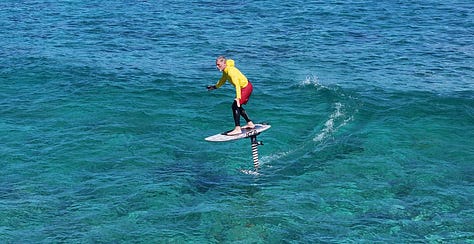
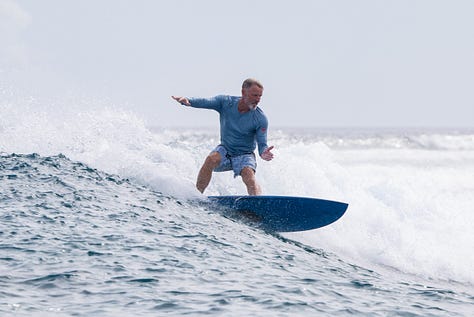
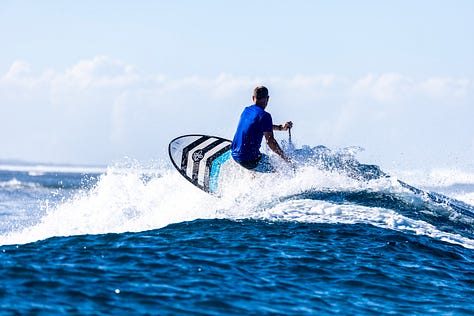
What you’re reminded of here is that the world we live in isn’t designed for restoration; it’s designed for reaction. If you don’t unplug with intention, it will pull you so far from yourself that you forget what peace even sounds like.
Namotu reminds me every year, not with some big breakthrough, but with space, unrushed, unfiltered, completely present.
And yes, it takes a few days. The phantom phone reach. The temptation to check in. The internal twitch that whispers, You should be doing more. But then it passes. My breath slows down. My mind clears. And for the first time in months, I just am—still, quiet, whole.
If you’re reading this and thinking you can’t afford a week off-grid, that’s exactly when you need it.
Find your version of this island. A cabin. A stretch of coast. A place that doesn’t care what you do or what you’ve built. Go there. Turn it off. Let it do its work. But take the time. Time and solace are the great healers.
When you come back, you won’t bring souvenirs. You’ll bring something better: a little more clarity, a little more softness, and a little more of yourself.



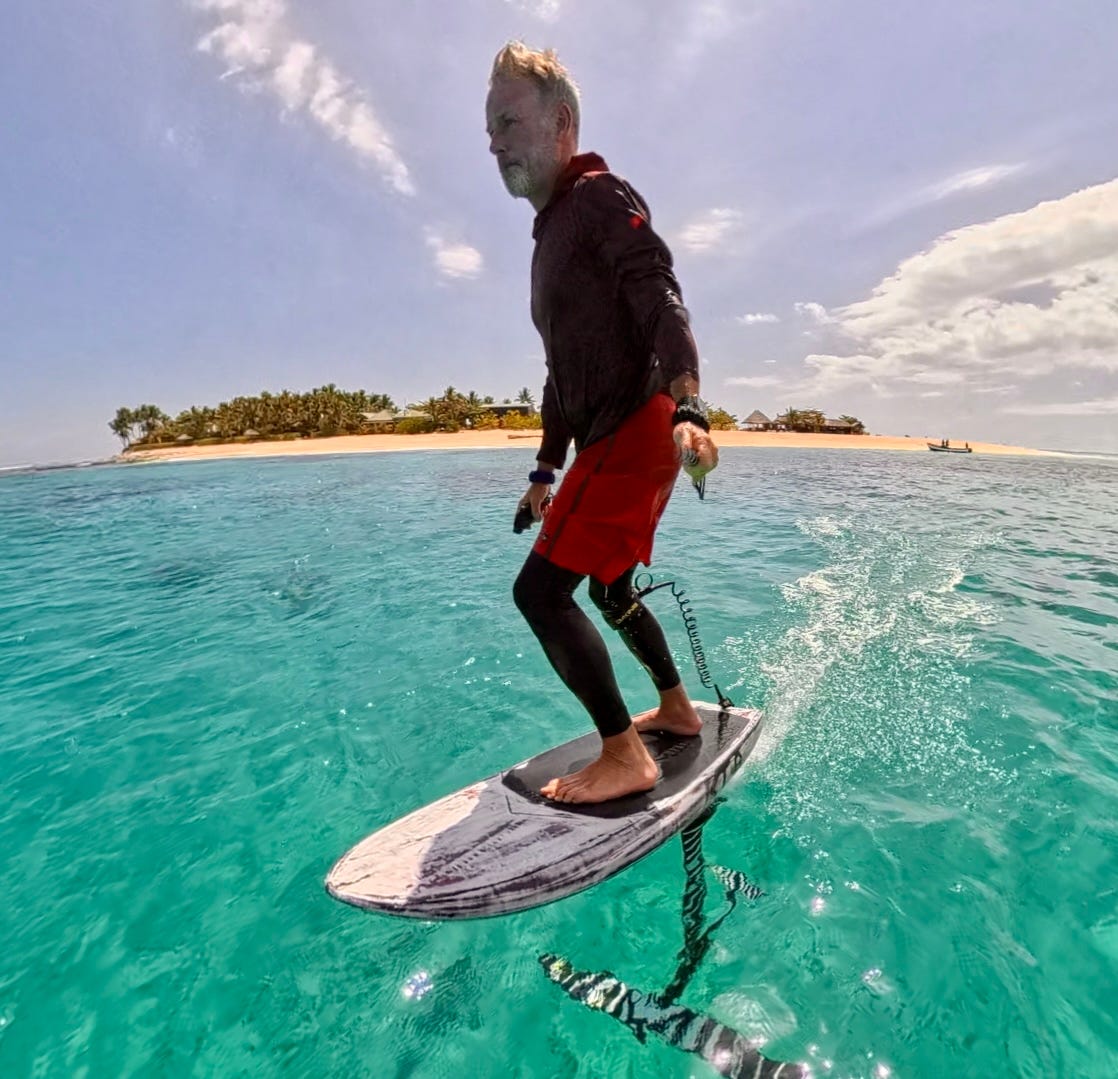
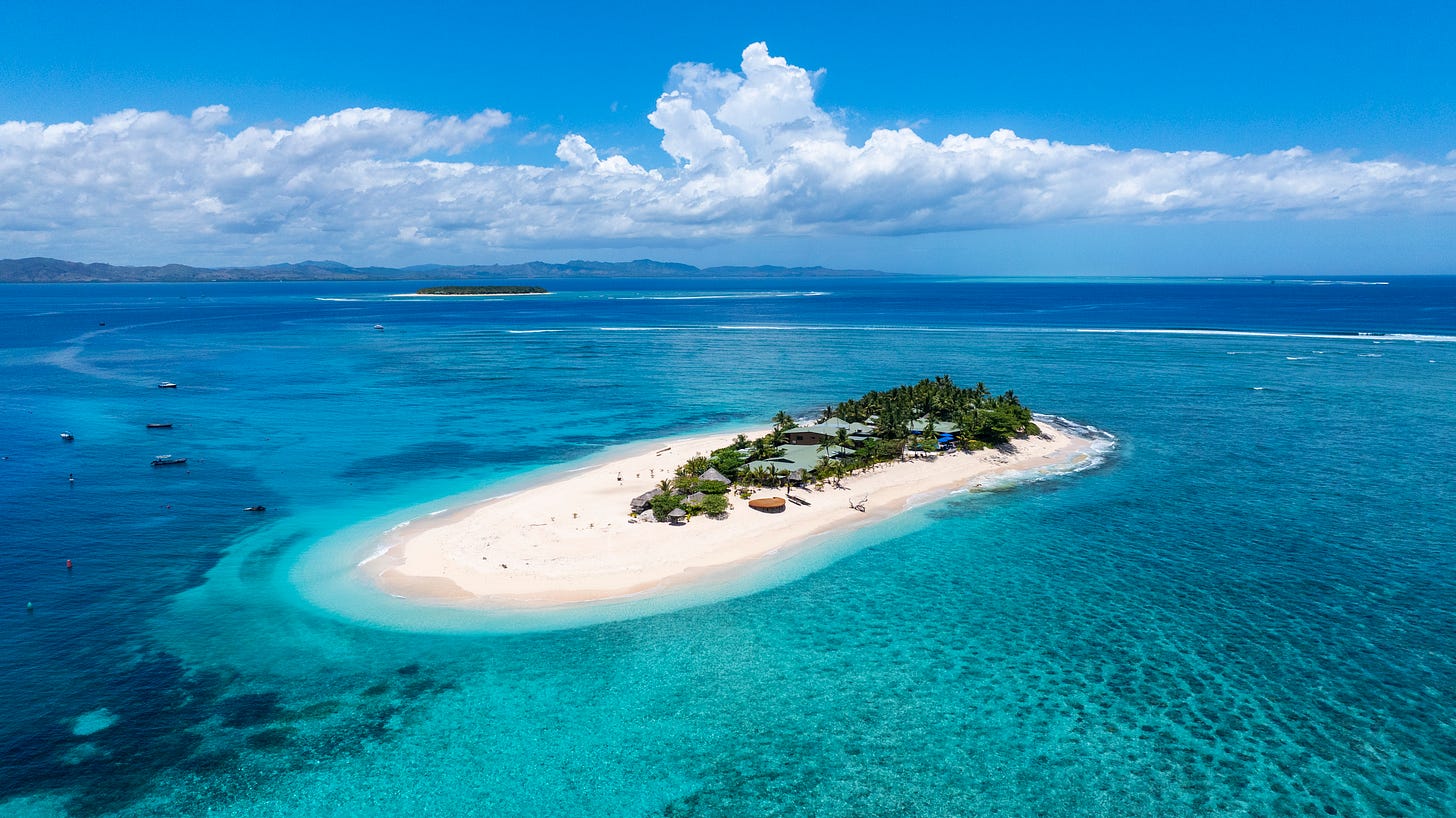
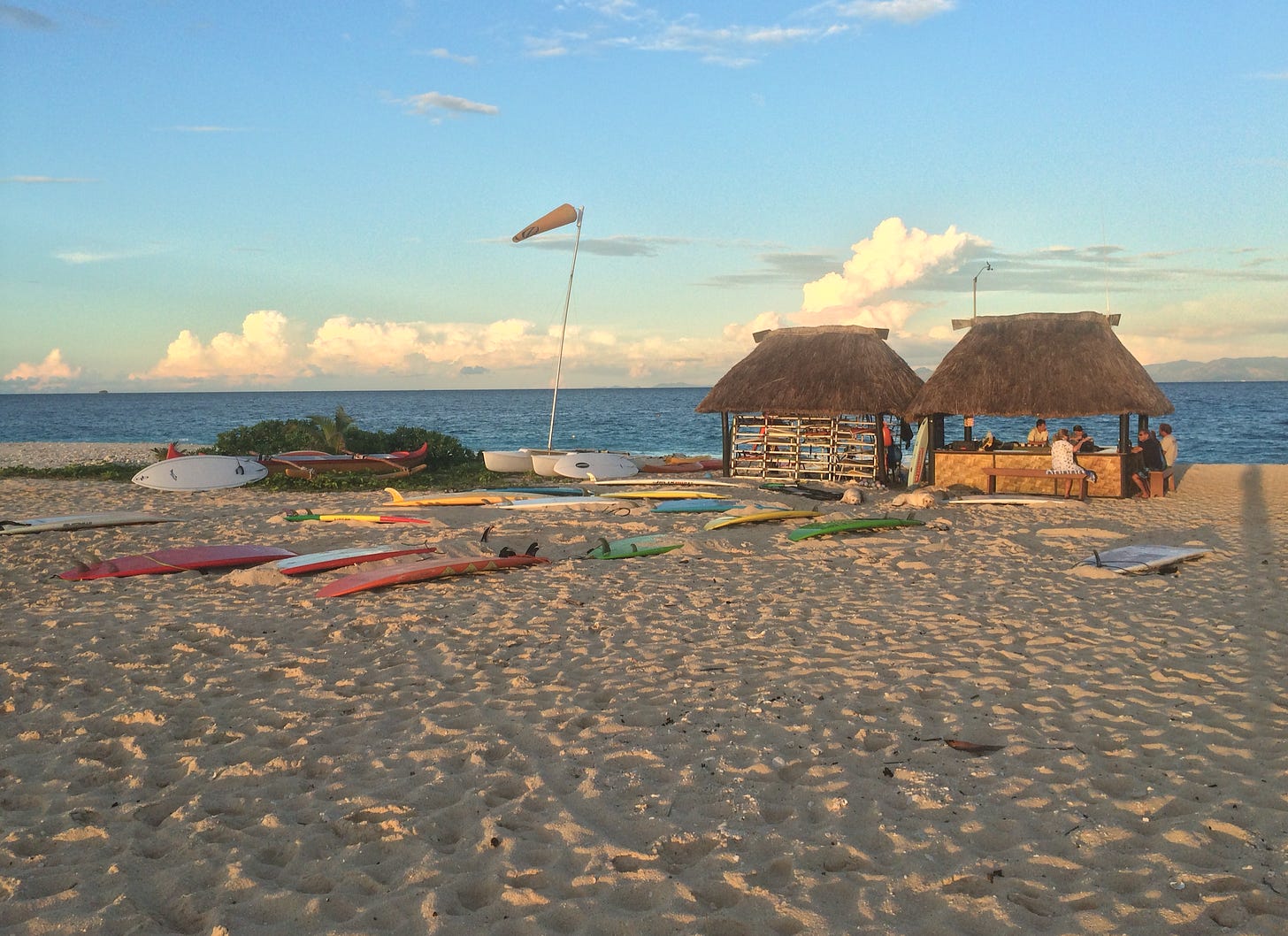
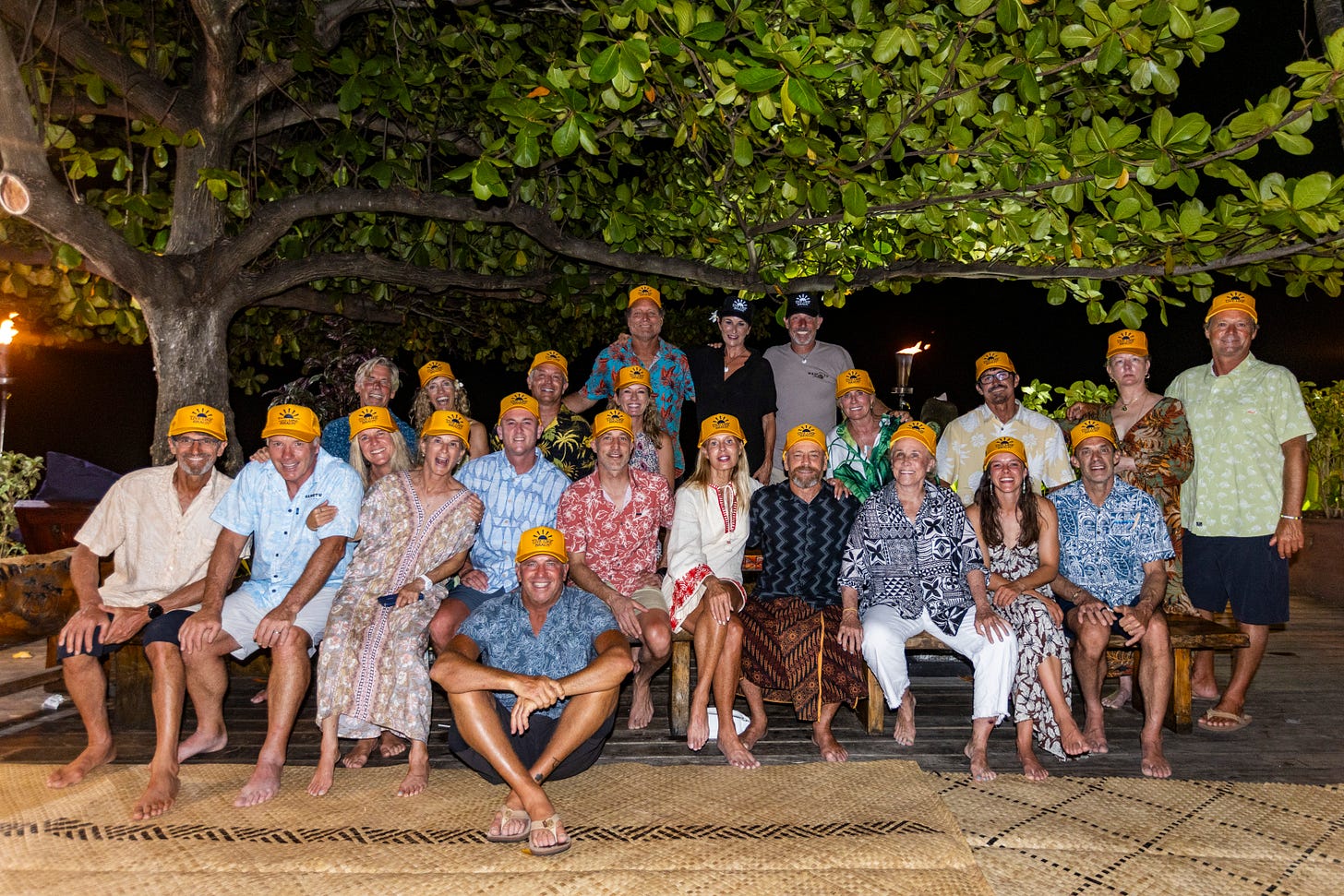
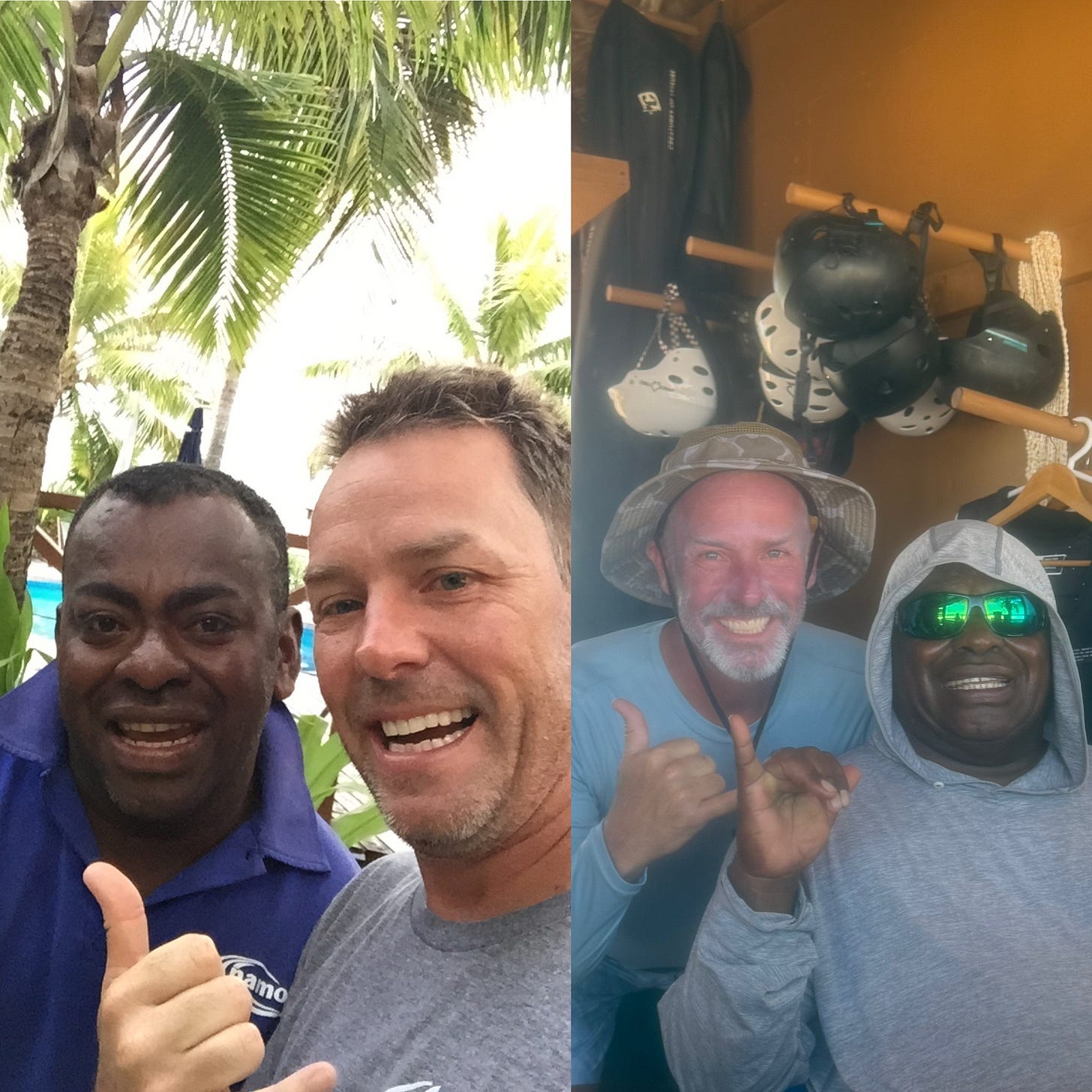
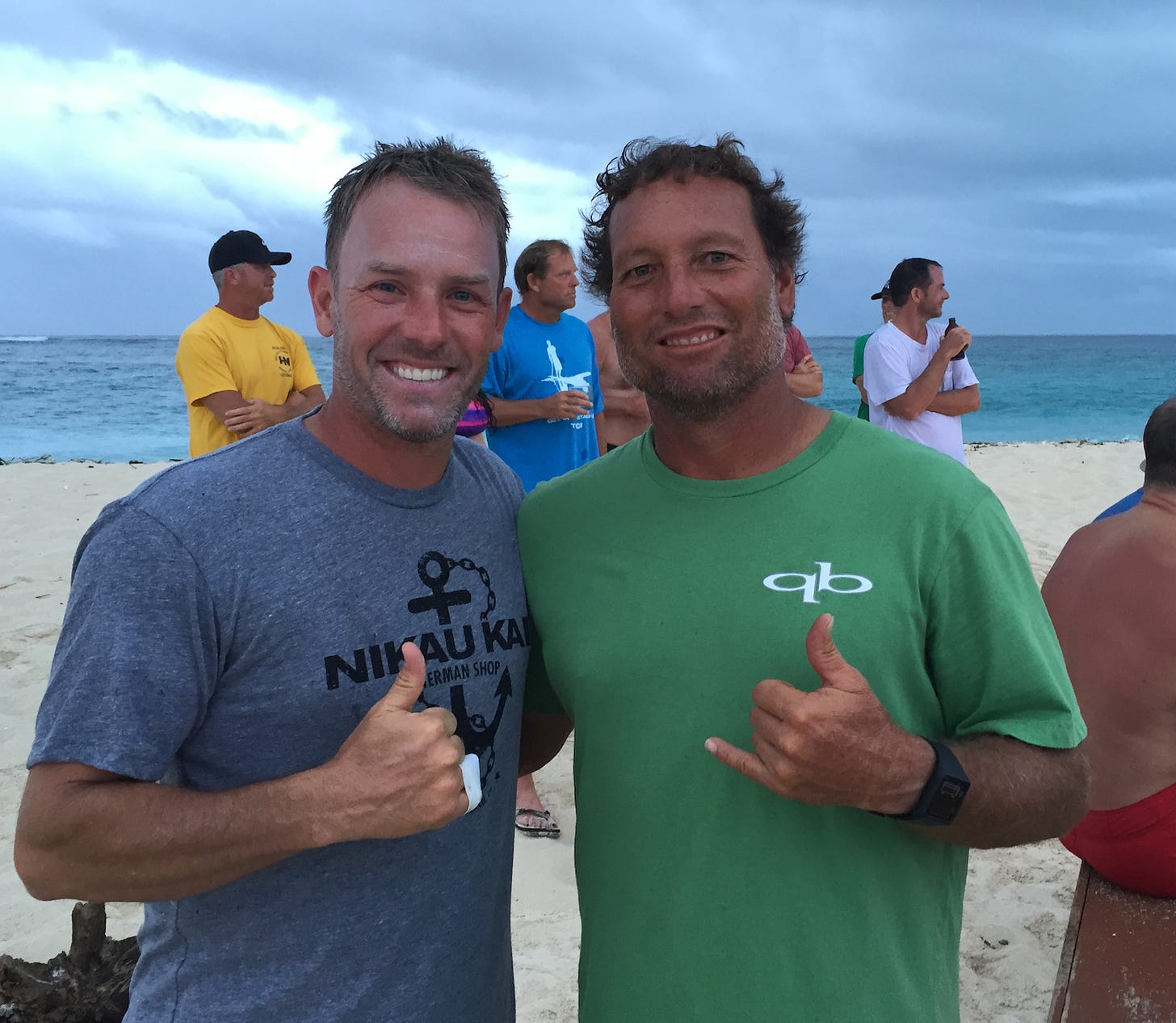
Nice ride brother Elo❤️
Wonderfully captured🇫🇯💖